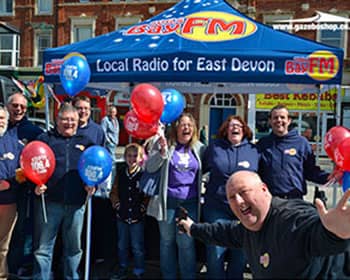

PR, as a marketing tool, can generate huge returns on investment. Many companies, fearful of cost, adopt a DIY approach...and waste more, often damaging their reputation
1. Most company owners give in to the deadly temptation to over-write. When press releases are unfocused and not written by a trained professional, the result is usually an instant delete. Far too many company owners cram in every possible detail, with no proper understanding of format or requirement. Most editors receive hundreds of press releases a day and will simply turn away from wordy, unstructured copy.
2. Understanding the media takes time and skill. It might be hard to digest but busy editors are not that interested in your company, product or service. Media isnt a free-for-all service. Like you, editors are part of a company. They care more about what will excite their readers, listeners, viewers and sell their copies not about how many sales you make. A PR professional will know how to attract an editors interest and make your company sound exciting and newsworthy.
3. Writing without bias in DIY PR is almost impossible. Take a pen and paper and scribble down a press release draft that doesnt mention description of your products or services or how brilliant you are and how your prices are unbeatable. A PR professional, with a trained objective eye, will spot the newsworthy angle that will light up an editors face with joy. Journalists love people who can do their research for them, have a piece of ready-made copy land on their desk. The professional PR Consultant knows this better than any and will deliver what is required, work to deadline, communicate easily and handle all follow-up calls without stress.
4. Do you really know what your company does? It may sound odd but many company directors may be successful and offer an excellent service but dont really have a complete picture of what theyre about. The PR Consultant will take responsibility for the company well-being by asking unusual questions and conducting appropriate research. Their sense of what you do may well differ!
5. Image is everything. In business, as in all walks of life, the way you present yourself to the world is of vital importance. Even if your product is fantastic, it is not going to help you to sell it if the public perception is misguided or the language you use is open to misinterpretation. Very often you will be so immersed in your business that you wont even spot the poor image or language. The best way to ensure an accurate portrayal of both - which is positive and compelling - is to employ the services of a PR consultancy who will act on your behalf.
6. Using the expertise of a PR Agency. Knowledge, experience, training and good contacts are what separate you from the PR professional, exactly as it does other trained individuals. Dont you think it wise to leave such a delicate area as handling the media with those who know what they are doing? DIY PR could result in negative PR. It has never been more important to be in control of the way your company or product is publicly portrayed. If disaster strikes, could you honestly handle the resultant possible damage to your reputation? The PR Consultancy will know exactly how to turn a negative to your advantage, remain calm and speak on your behalf.
7. Promoting yourself as a leader in your field. Public relations is not always about a short-term campaign; it also encompasses long-term strategic plans such as advising on working with community projects or government leaders, in order to enhance or protect your image. This will be planned and sustained to maintain goodwill and mutual understanding. The professionals will understand that the real strength of PR lies in how it can shape public opinion without the public even realising it. They will work to educate the public about the issues you are involved in, rather than your direct product, promoting you as the expert in that area.
Questions to ask a PR Agency before engaging them:
1. How much experience do you have of working with my industry?
2. Do you have the necessary media contacts to ensure the target audience is reached?
3. Would you be able to handle all our needs in-house? If outsourced, how long have you worked with these companies?
4. How is the work arranged – with a number of clients on a long-term basis or several short-term projects?
5. Will a particular individual be assigned to me who I will be able to contact at any time?
6. What is your track record? Can I see examples of your work?
Footnote: SEJ PR editorial coverage: PR can have a long-term developmental role or a short-term contingency one. At its most successful it can change attitudes from negative to positive, hostility to sympathy, prejudice to acceptance, apathy to interest, and ignorance to knowledge.
CONTACT
Sandy Eifion-Jones
SEJ PR & Editing Services
T: 020 8979 4947
M. 07985 249 964
E: sandy@sejwritingservices.co.uk
www.sejwritingservices.co.uk
Sandy Eifion-Jones
SEJ PR & Editing Services





As we cannot be experts in every relevant subject, we would love to receive 'guest' articles that may be of interest to anyone running their own business or thinking of doing so. ADD YOUR ARTICLE
